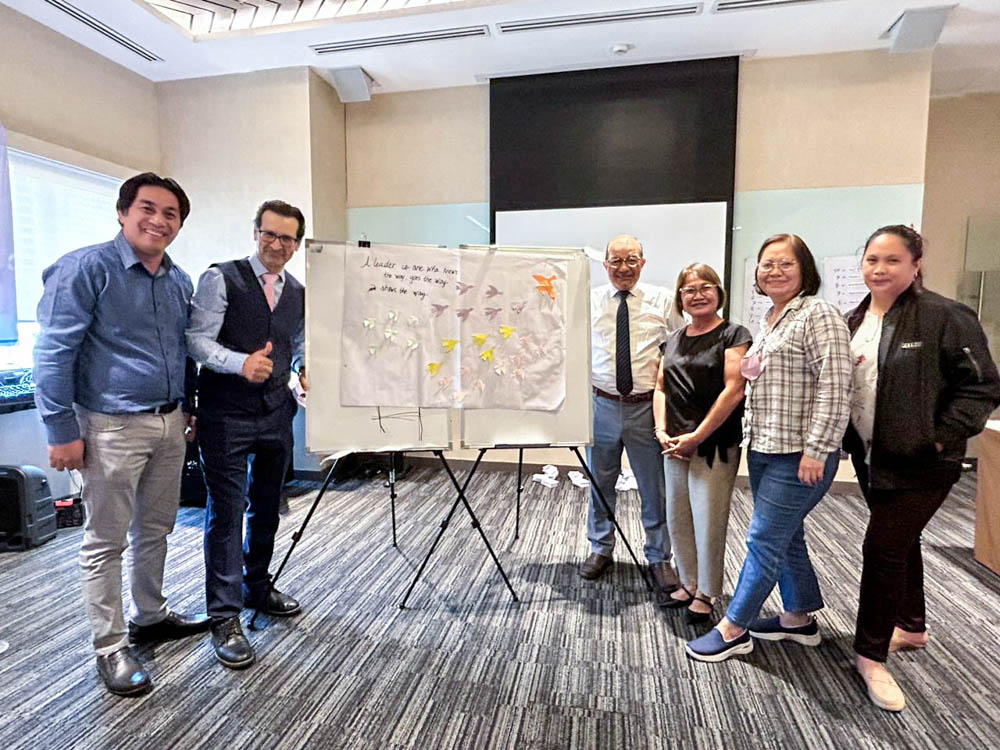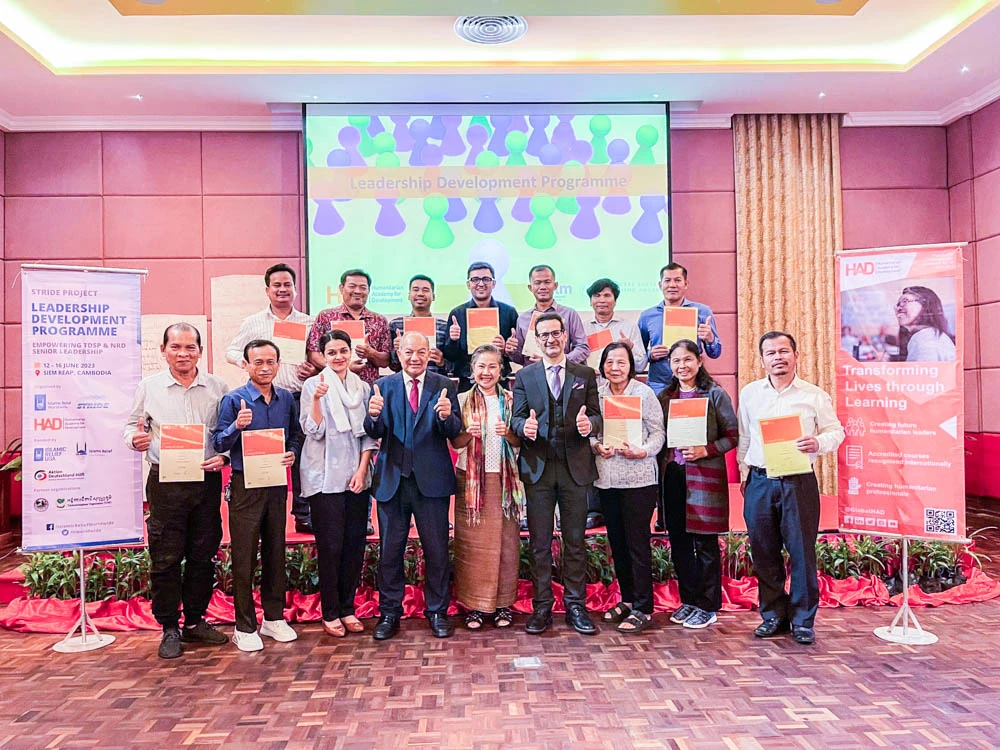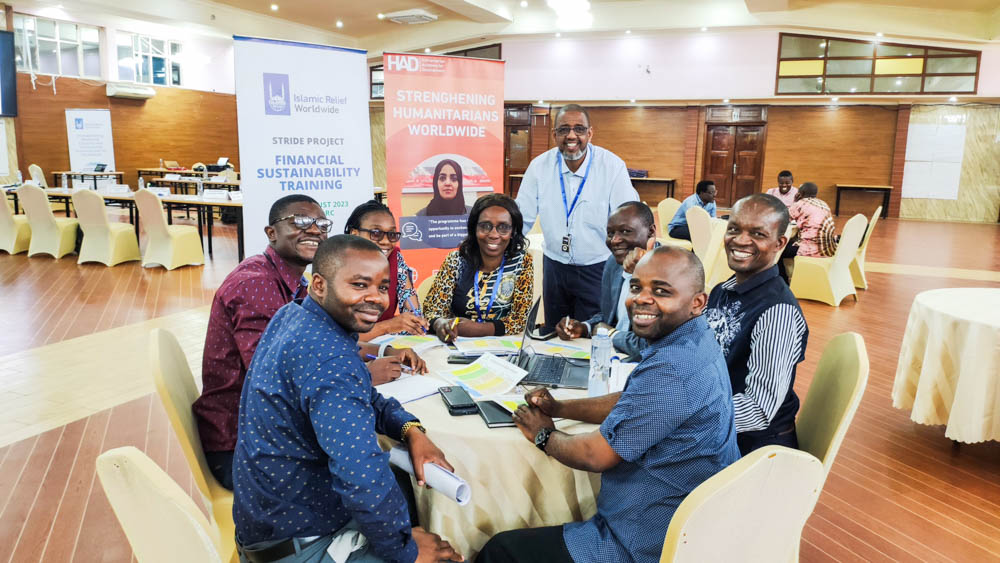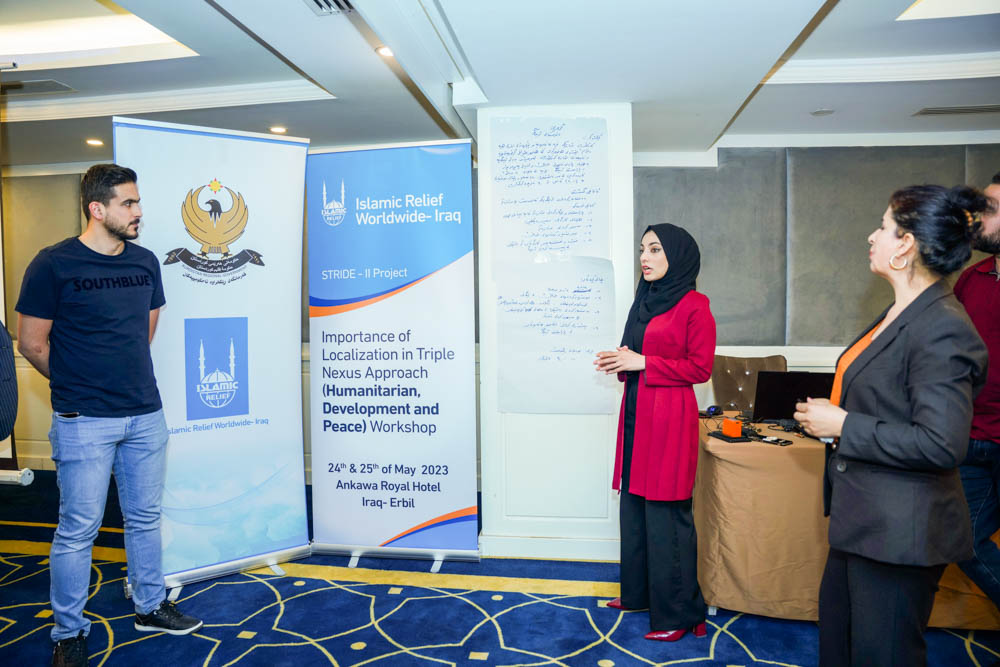Since October 2022, Islamic Relief Worldwide has been a proud signatory of the Grand Bargain 2.0 – a rigorous global framework for humanitarian work.
In celebration of the anniversary of this achievement, we are breaking down what the framework is and why it is crucial for organisations like Islamic Relief.
Q1: What is the Grand Bargain 2.0 framework?
A: The Grand Bargain 2.0 is an innovative framework to enhance humanitarian effectiveness. It builds upon the original Grand Bargain – a commitment major donors and humanitarian organisations made at the World Humanitarian Summit 2016. The framework addresses the humanitarian sector’s critical challenges and promotes collaboration, efficiency, and transparency in humanitarian action.
The framework aims to empower local responders who understand community needs, streamline processes, and secure predictable, multi-year funding. By fostering collaboration and transparency, Grand Bargain 2.0 strives to maximise and improve resources, and better address the evolving needs of affected populations.
Q2: What are the main objectives of Grand Bargain 2.0?
A: The Grand Bargain 2.0 aims to achieve 3 main objectives:
- Enhancing humanitarian aid: Reducing duplication, streamlining processes, and improving coordination to ensure timely, effective assistance.
- Strengthening Local Leadership: Empowering local and national responders to lead and enhance capacity in humanitarian operations.
- Enhancing Humanitarian Financing: Streamlining reporting to reduce earmarking, and simplify processes for flexible and predictable funding, fostering transparency and accountability.
Q3: Who are the key stakeholders involved in the Grand Bargain 2.0?
A: The Grand Bargain 2.0 involves a wide range of stakeholders, including major donors, humanitarian organisations, and affected countries. Key actors include governments, United Nations’ agencies, the International Red Cross and Red Crescent Movement, non-governmental organisations (NGOs), and other humanitarian actors.
Q4: What are the main changes or improvements introduced in Grand Bargain 2.0?
A: Grand Bargain 2.0 introduces several changes and improvements compared to the original framework. Some of the most notable include:
- Strengthening the role of local and national actors: Putting greater emphasis on empowering local and national responders, recognising their expertise and knowledge in humanitarian action.
- Simplified reporting requirements: Aiming to reduce the reporting burden on humanitarian organisations by harmonising reporting standards and making them more streamlined and efficient.
- Flexible and multi-year funding: Encouraging more flexible, multi-year funding commitments, enabling humanitarian organisations to plan and implement interventions more effectively and efficiently.
- Enhanced transparency and accountability: Emphasising transparency and accountability in humanitarian financing by promoting standardised data and reporting mechanisms to facilitate better tracking of funding and outcomes.
Q5: What are the 5 workstreams?
The Grand Bargain 2.0 framework is organised around 5 key workstreams, which are:
- Greater Transparency: Focusing on improving information sharing for coordinated decision-making and efficient resource allocation in humanitarian action.
- More support and funding tools to local and national responders: Focusing on providing increased support and financial tools to boost local and national responders’ autonomy and effectiveness.
- Improve joint and impartial needs assessments: Focusing on enhancing response quality through joint, impartial needs analyses, data sharing, and participatory approaches.
- Local and National Leadership: Focusing on elevating local and national actors’ capacity, engagement, and decision-making authority in humanitarian response.
- Harmonised and Simplified Reporting: Focusing on armonizing standards, reducing duplication, and simplifying reporting for better coordination and resource allocation.
Q6: What is the difference between Grand Bargain 2.0 and other frameworks for humanitarian organisations?
A: The Grand Bargain 2.0 stands out from other humanitarian frameworks in various ways. Firstly, it prioritises collaboration and coordination, aiming to eliminate redundancy and enhance cooperation for a more efficient response.
Secondly, it places a strong emphasis on local involvement and leadership, empowering and developing local actors.
Thirdly, it simplifies reporting across the sector, enhancing transparency and efficiency. Additionally, the inclusion of a dedicated workstream for cash-based programming highlights its innovative approach.
Lastly, Grand Bargain 2.0’s focus on transparency and accountability in financing sets it apart by offering concrete measures for financial clarity.
Q7: What does it mean for Islamic Relief to be a signatory of Grand Bargain 2.0?
A: Being a signatory of the Grand Bargain 2.0 reflects Islamic Relief’s commitment to its principles and goals. It signifies dedication to enhancing humanitarian effectiveness, aligning with the framework’s objectives.
By becoming a signatory, Islamic Relief has shown a willingness to collaborate, coordinate, and contribute to addressing sector challenges. Through this commitment, Islamic Relief makes specific pledges in line with the framework’s workstreams, including local empowerment, coordination improvement, streamlined reporting, cash-based programming expansion, and enhanced financial transparency.
Being a signatory also offers networking opportunities and knowledge sharing, allowing Islamic Relief to contribute expertise to collective humanitarian improvement. It showcases the organisation’s commitment to collaboration, accountability, and effectiveness in its response efforts.
Q8: Which other organisations have signed this agreement?
A: Some of the notable international non-governmental organisations (INGOs) to have signed the agreement include:
- Action Against Hunger (ACF) International
- Care International
- International Committee of the Red Cross (ICRC)
- International Federation of Red Cross and Red Crescent Societies (IFRC)
- International Medical Corps (IMC)
- Médecins Sans Frontières (Doctors Without Borders) (MSF)
- Norwegian Refugee Council (NRC)
- Oxfam International
- Save the Children
- World Vision International
Q9: How will Islamic Relief keep ensuring it meets the Grand Bargain 2.0 commitments?
Islamic Relief, as a signatory of the Grand Bargain 2.0, is taking concrete steps to fulfil its commitments outlined in the framework. To ensure compliance with the commitments, Islamic Relief aims to employ the following measures:
Empower partners globally:
Islamic Relief is actively pursuing its commitment to the Grand Bargain 2.0 by empowering local partners worldwide and aligning its strategies with the framework’s objectives. The organisation is in the process of formulating distinct partnership and operational models tailored to the specific needs of each country among the more than 40 it operates in globally. This move is based on field experiences and learnings from a diverse range of contexts, aiming to enhance the effectiveness of local actors in humanitarian operations.

Enhance capacity locally:
Islamic Relief’s dedication to local empowerment is evident through the implementation of the Strengthening Response Capacity and Institutional Development for Excellence (STRIDE) project across its global operations. This project, with a budget of $1.8 million, offers flexible grants to local partners and its field offices for capacity enhancement in multiple countries.
These include: Afghanistan, Bangladesh, Cambodia, Ethiopia, the Occupied Palestinian Territory, Jordan, Indonesia, Pakistan, the Philippines, Lebanon, Myanmar, Mali, Niger, Sudan, South Sudan, Somalia, Sri Lanka, Kenya, and Yemen.
The project covers various areas, including governance, financial sustainability, disaster management, and more. We have successfully provided capacity-building support to 53 local organisations under STRIDE project and regular programmes, enabling them to respond effectively to emergencies.

Localisation in action:
The organisation’s commitment to localisation involves self-assessment by local partners in diverse countries such as the Democratic Republic of Congo (DRC) and Nigeria. They identify their strengths and needs, ensuring sustainable support interventions tailored to the capabilities of local actors. For instance, Islamic Relief’s local partners in DRC and Nigeria identified areas like financial and reporting systems, human resource management, and resource management for capacity strengthening. This localised approach enhances efficiency and ownership, resulting in timely and effective humanitarian responses.

Gender equality and nexus integration:
Islamic Relief’s commitment to gender equality and women’s empowerment is systematically integrated into its projects across various countries. Gender inclusion and mainstreaming occur at all stages of projects, with a special focus on needs assessments and rights holder targeting.
Additionally, the organisation strategically aligns its actions with the humanitarian-development nexus across its operations in multiple countries, adapting its work streams to meet the evolving needs of field teams and local partners.

Transparent risk sharing:
Islamic Relief’s commitment extends to transparent risk-sharing with partners across its operations in multiple countries. The organization conducted comprehensive capacity mapping and due diligence exercises in 20 “high-risk” countries to understand the landscape. To enhance risk management, Islamic Relief advocates for the hiring of dedicated Humanitarian Managers in field offices across multiple countries. Additionally, the organisation supports local partners through risk analysis strategies, resource generation, and regular reviews, promoting effective risk mitigation.
By executing these strategies globally, Islamic Relief actively ensures the realization of its Grand Bargain 2.0 commitments across its operations in multiple countries.
Find out more about Islamic Relief’s work on Grand Bargain 2.0 in the recently released Annual Independent Report 2023 by the Humanitarian Policy Group.
Empower local humanitarian heroes today by donating to support our localisation efforts. Together, we can create a more effective and responsive humanitarian sector. Donate now.
BROWSE OTHER OPINIONS
FEATURED OPINIONS
- Lamia El Amri appointed Acting Chair of Islamic Relief
- Palestine Conflict Blog #2
- Earth Day: tackling war and hunger also means ending our dependence on fossil fuel
- ‘I feel this time we might not be able to survive’: Gaza blockade tightens amid escalation
- “Each moment lost is a moment that our Earth cannot afford”
MOST POPULAR TOPIC
View More









